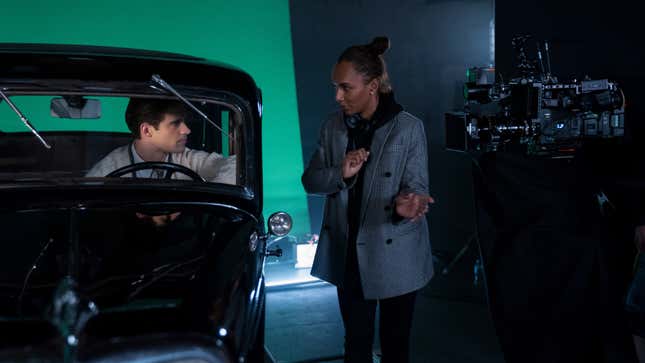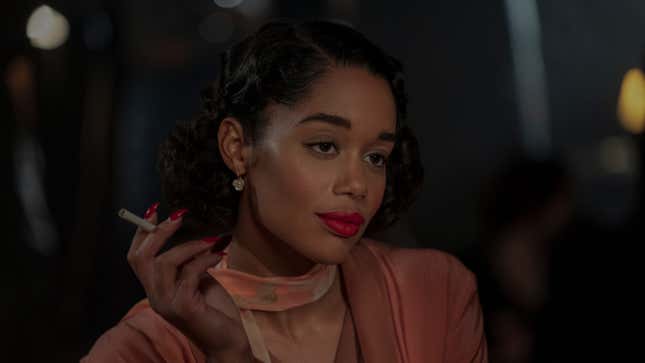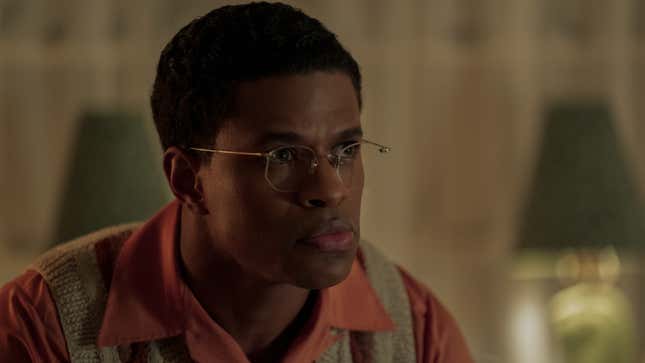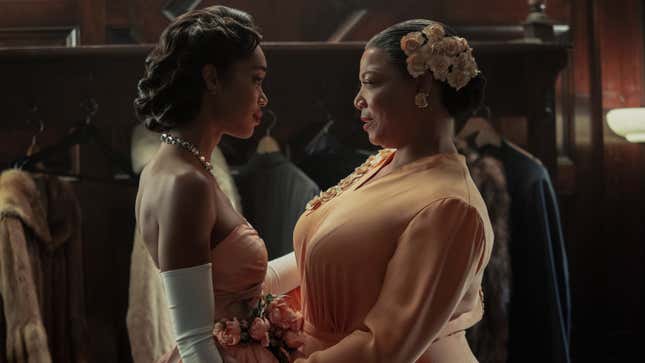
Hollywood has the best publicist in the game. For years, it has taken on the identity of a city with “streets paved with gold,” when the actual streets are paved with the dust of unrealized dreams, unbridled tourism, and, you know, rampant poverty.
I’ve always been obsessed with Hollywood. As a child, I routinely shined my tiny rose-colored glasses as my imagination took me onto the Walt Disney Studios lot and inside the voice-over booths of some of my favorite animated films. When I realized that my wayward mind was perfect for that of a professional writer—of a creator—I knew that’s what I wanted. Though I was a full adult by the time I visited Los Angeles for the first time, I still had dreams of walking down Hollywood Boulevard and finally getting to stand right in front of the famous Dolby Theatre (previously known as The Kodak Theatre) I’d always admired as I religiously watched The Academy Awards on my television every year.
What I saw in person wasn’t what I expected. I certainly had no qualms about a golden Hollywood, but the bombastic balloon had admittedly deflated a bit (though I still knew I wanted to move to LA). Cut to today, and I’m thoroughly immersed in the very industry I’ve dreamed of but the jadedness has, at times, overwhelmed me. Still, that dreamy Tonja persists.
Netflix’s Hollywood reimagines an ideal ‘Dreamland’ where dreams really do come true— to me, its release is perfect timing when escapism is desperately necessary to cope. Still, it’s not an overly flowery fantasy; there are still stark peeks of Hollywood throughout the series. After all, we need a little drama, don’t we?

The official synopsis, provided to The Root:
A new limited series from Ryan Murphy and Ian Brennan, Hollywood follows a group of aspiring actors and filmmakers in post-World War II Hollywood as they try to make it in Tinseltown — no matter the cost. Each character offers a unique glimpse behind the gilded curtain of Hollywood’s Golden Age, spotlighting the unfair systems and biases across race, gender and sexuality that continue to this day. Provocative and incisive, Hollywood exposes and examines decades-old power dynamics, and what the entertainment landscape might look like if they had been dismantled. Hollywood stars David Corenswet as Jack, Darren Criss as Raymond, Jeremy Pope as Archie, Laura Harrier as Camille, Samara Weaving as Claire, Dylan McDermott as Ernie, Holland Taylor as Ellen Kincaid, Patti LuPone as Avis, Jim Parsons as Henry Willson, Jake Picking as Rock Hudson, Joe Mantello as Dick, and Maude Apatow as Henrietta.
I’ll say it now: I’ve binged through the entire series and quickly became obsessed with Hollywood, the TV series, with the same energy my younger self had with Hollywood, the place. The series is vivacious and vulnerable in a way that’ll leave you feeling alive.
When series executive producer, writer and director Janet Mock signed her overall deal with Netflix in June 2019, she became the first black trans woman to sign such a deal with a major studio. So, I was thrilled to sit down and have a phone conversation with Mock since the series also leans into historic moments, whether real or fictionalized.

By introducing the hope of the first black screenwriter (Pope) or the first black lead (Harrier) of a major motion picture studio, Hollywood deftly balances the sheer hope and devastating reality that the more things change, the more they stay the same. “It’s the way things are,” says one executive in a poignantly simple line.
In 2020, we’re still celebrating “firsts”, unfortunately. While an elite designation, it also comes with a burden: Yes, being the first is a historic achievement, but would you want to be the only?
“I think about the burden of representation that falls on the shoulders of those who are the first, I think about the ways in which, oftentimes we have to do so much added work, educating people about why we deserve to be in the room, why our stories matter [and] why we should be the ones to tell it,” Mock told The Root, citing notorieties such as Hattie McDaniel (portrayed by Queen Latifah in the series), Dorothy Dandridge and Lena Horne. “I think that what gatekeepers and decision-makers can do today is make sure that they’re not only recruiting diverse talent into the room but making sure that they’re equipping them with the skills necessary to thrive in this space and that they ensure that they’re not tokens; that they’re deeply engaging all of them, all of their talents [and] all of their skills. I think what’s really dangerous sometimes, is that industry gatekeepers pat themselves on the back for having one. But having one is not progress. That’s not going to institute any kind of change. It’s when you can actually make sure that you’re developing a slew [and] an ensemble of collaborators with different points of view, different identities and different ways of doing things.”

Hollywood never shies away from tackling issues such as racism, homophobia, sexism and ageism, all of which are entirely relevant today. So, as we glance back with an expectant look toward the future, how does this series fit into our progressive dreams?
“I hope that what [this series] does is that it allows specifically black and brown, LGBTQ people and women of color to say that you’re deserving of being on that screen and you’re deserving of seeing your story on that screen,” Mock said. “And we need you to tell it. I hope that it inspires people to do just that. Also, today, industry power players who have access to the privilege of making decisions, that they actually make bold decisions like Avis Amberg (Lupone)...and that they take the shot of an unknown screenwriter, a talented starlet who may be an unconventional choice for a lead...that we take these bigger swings, bigger risks and bigger challenges for bigger rewards.”
Hollywood drops on Netflix on May 1.
This interview has been edited and condensed for clarity.

